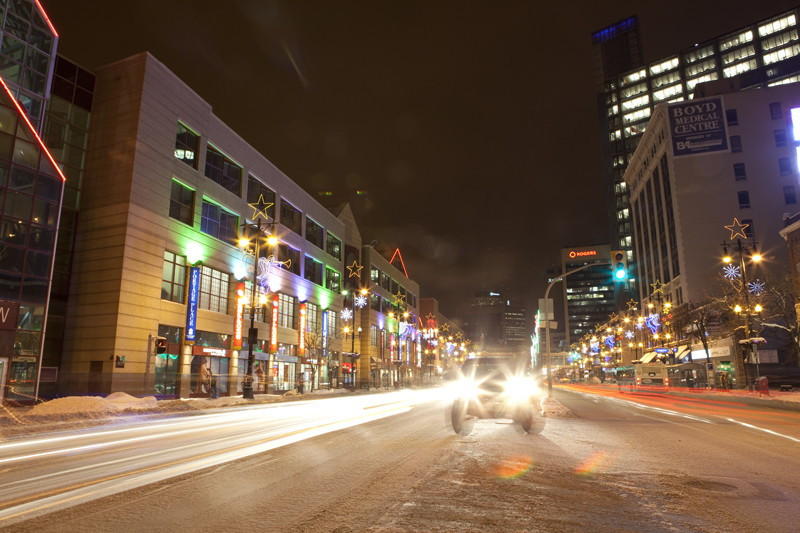The age of responsibility behind the wheel
Drinking and driving is a crime that affects people of all ages
Recent news reports have shown several cases of young drivers causing accidents while inebriated behind the wheel, but according to experts, older drivers continue to be a danger after they’ve been drinking as well.
“You wake up and you hear about an accident and never think it’s going to be your mom or your sister or your friend, but sometimes it is,” said Alexa Lacroix, a student at Red River College.
Lacroix went to school with the five girls struck in a vehicle in the early morning of Oct. 31 at Bishop Grandin Boulevard and St. Mary’s Road. Two of her friends, aged 17 and 19, died as a result of the accident caused by an underage drunk driver.
“It changes the way you think about drinking, period,” Lacroix said. “None of the people who knew any of the girls in that accident want to drink because it’s a reminder. When it becomes a personal thing, you take it a lot more seriously – it hits home now and it’s big part of my life.”
According to Gord Kowalchuk, of Winnipeg’s chapter of Mothers Against Drunk Driving (MADD), alcohol is not the biggest part of the problem.
“It’s very important that people realize that they should not be hopping into a vehicle with someone who has been drinking,” he said. “We (MADD) are not saying ‘don’t drink ever’ – what we are saying is ‘don’t drink and drive.’ We want to take the vehicles ... out of the equation.”
MADD launched Project Red Ribbon for awareness of the problem the week following the accident and has made an appeal for the legal drinking age to be raised to 21 in Manitoba.
While the perception that the majority of drunk drivers are in their teens or early 20s is not always true, statistics are worrisome, according to Kowalchuk.
“It’s unfair to young people,” he said. “However, the numbers of young people that do drink and drive are of a very high concern.”
But according to Sergeant Rob Riffel, impaired driving countermeasures coordinator with the Winnipeg Police Service, it’s not the young people that society should be concerned about.
“Anecdotally speaking, when we do our enforcement, it seems that with all the constant messaging and driver’s education, the young people are getting it – the older people, probably 25 plus, just see it as a social problem and not a crime,” he said.
Riffel explained that the seriousness of the crime is not usually recognized by adults who are out for a couple drinks in the evening. Part of the bigger problem is they do not take the time to plan ahead.
“It’s the number one criminal cause of death within Canada and it’s totally preventable,” he said. “That’s what the problem is, and that’s what’s so frustrating from the police point of view – with a little bit of forethought, plan your evening before you go out.”
Gord Gillis, president and CEO of Safety Services Manitoba – the organization that runs Operation Red Nose (ORN) – agrees.
“The misconception that some people have is that people should just call (ORN) when they are in a bind,” he said.
Gillis explained that 1,600 volunteers will be available to drive the caller and his or her car home safely if they do make a last minute call.
Operation Red Nose is available now until the end of December every Friday and Saturday night.
“Any time a person that was going to drive impaired doesn’t, we all win,” Riffel said.
Published in Volume 65, Number 14 of The Uniter (December 2, 2010)







